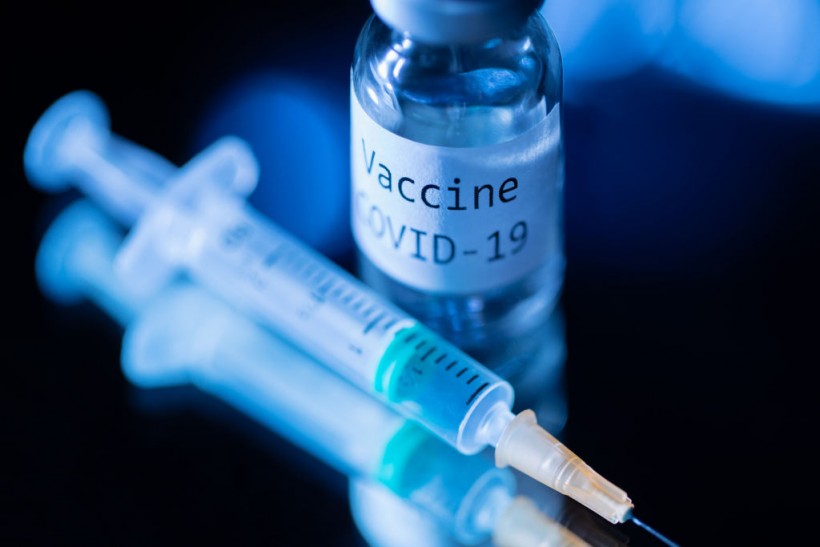A recent study conducted by scientists at the University of Oxford has shed new light on the efficacy of COVID-19 vaccines in mitigating severe illness.
Published in the journal Nature Communications, the study offers crucial insights into the immune response triggered by COVID-19 vaccines, particularly the ChAdOx1 nCoV-19 vaccine, developed in collaboration with AstraZeneca.

(Photo : JOEL SAGET/AFP via Getty Images)
TOPSHOT - This picture taken on November 17, 2020 shows a syringe and a bottle reading "Vaccine Covid-19". - According to the World Health Organization, some 42 "candidate vaccines" against the novel coronavirus Covid-19 are undergoing clinical trials on November 17, 2020.
Study Finds Vaccination Significantly Reduces COVID-19 Severity
Despite the success of global vaccination campaigns, concerns persist regarding the spread of COVID-19, even among vaccinated individuals. To address this, researchers at the Oxford Vaccine Group delved deep into the immune mechanisms behind the vaccine's ability to attenuate disease severity.
The study analyzed samples from participants enrolled in randomized placebo-controlled trials using state-of-the-art technologies, including RNA sequencing. Blood samples were collected at different time points, from baseline to the onset of COVID-19-like symptoms and seven days after symptom onset. The presence of COVID-19 infection was confirmed using nucleic amplification tests.
The findings were conclusive: vaccinated individuals exhibited a reduction in indicators of disease severity compared to their unvaccinated counterparts. Professor Daniel O'Connor, Head of Bioinformatics at the Oxford Vaccine Group, emphasized the significance of these results, stating, "These results confirm the efficacy of vaccination and its pivotal role in reducing the harmful consequences associated with COVID-19."
Key findings from the study include the identification of unique responses to COVID-19 among vaccinated individuals, demonstrating the vaccine's influence on disease responses. Moreover, there was a noticeable reduction in harmful responses associated with COVID-19 severity in recipients of the ChAdOx1 nCoV-19 vaccine.
Read Also: New Research Reveals Secondhand Smoke Exposure Increases Risk of Serious Heart Rhythm Disorder
Study Looks Further into COVID-19 Vaccine Efficacy
Professor Sir Andrew Pollard, Ashall Professor of Infection and Immunity and Director of the Oxford Vaccine Group, highlighted the broader implications of the research, stating, "Better understanding of how vaccines can reduce the severity of infections caused by viruses like COVID-19 is a key part of our preparedness to make effective vaccines against the next pandemic threat."
Furthermore, the study revealed a correlation between decreased levels of specific blood molecules and elevated levels of inflammation, suggesting a regulatory role for these molecules in the inflammatory response to viral infection.
The study's methodology was meticulous, employing a comprehensive approach to analyze the immune response triggered by the vaccine. From serum cytokine measurements to transcriptome analysis, the researchers left no stone unturned.
Vaccines play a pivotal role in mitigating disease severity, so policymakers and public health experts have valuable guidance to inform future vaccine development and pandemic mitigation strategies.
Professor Daniel O'Connor states, "The implications of these findings are far-reaching, offering evidence fundamental to future vaccine development and pandemic mitigation strategies."
Stay posted here at Tech Times.
Related Article: COVID Not Linked to Increased Asthma Risk in Children: New Study






